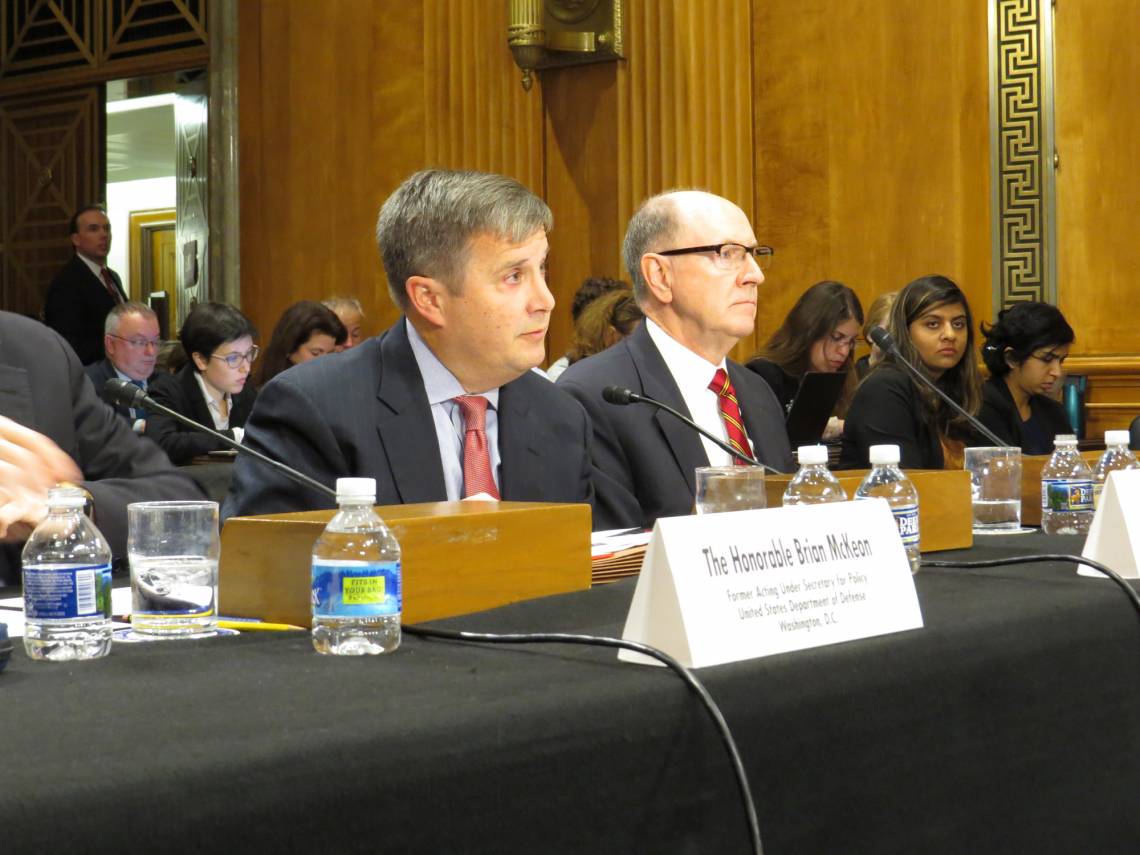Duke Professor Testifies on the Control of Nuclear Weapons
Peter Feaver testified Tuesday before the Senate Foreign Relations Committee

The time may be ripe for Congress to look at the command and control system currently used to determine whether or not to launch a nuclear weapon, Duke political science professor and former National Security Adviser Peter Feaver testified Tuesday.
Feaver, who served as a security adviser under President George W. Bush, appeared before a Senate Foreign Relations Committee that was holding a hearing on the Presidential “Authority to Order the Use of Nuclear Weapons.” Other panelists included retired Air Force Gen. C. Robert Kehler, the former Commander United States Strategic Command; and Brian McKeon, the former Acting Under Secretary for Policy U.S. Department of Defense.
The best measure to secure the “Nuclear Triad” -- the land, air and sea-based options for delivering a nuclear strike -- may not be legislating the president’s nuclear authority, Feaver said, but improving the nuclear chain of command’s human capital and training.
“In the past” Feaver said, “Congress has played a vital role in pushing the Executive Branch to strengthen the nuclear command and control system, and the time may be ripe for another close look.”
There are two situations in which the president decides to use nuclear force, Feaver said: When the president wakes up the military and when the military wakes up the president. When the president initiates the idea of using a nuclear weapon, particularly in a case of preventive war, there is a coterie of lawyers and advisors in the White House and Pentagon who openly debate the issue. In other words, there is time to debate strike options.
When the military wakes the president, there is a significant possibility of an imminent strike and the president must quickly decide whether or not to deploy a nuclear counterstrike. In such a scenario, the timespan to deliberate is shorter and less subject to legal discussion, Feaver said.
Not since 1976 has Congress held a hearing to debate the president’s authority to use nuclear weapons. With an increasingly bellicose nuclear North Korea and Twitter rhetoric from President Donald Trump, Congress has once again opened the question on the legitimate use of nuclear weapons in armed conflict.
Much of the nuclear chain of command is already “devoted to safety and security measures designed to minimize these risks” Feaver said. Launch and detonation processes require complex authentication networks and proofs of validation meant to prevent accidental or unintentional nuclear detonation.
Congress should step carefully when debating legislative controls to the president’s ability to use nuclear weapons, the panelists cautioned. In order for a nuclear deterrent to work, “we must have a high assurance that the country will always be able to present a credible nuclear strike capability to our adversaries, even in the most-dire scenarios,” testified Feaver. The deterrent strength of a nuclear arsenal is not only in its ability to strike anywhere, but in the ability of the Commander-in-Chief to expeditiously make that decision.
But “because even a single nuclear detonation would be so consequential and might trigger an escalatory spiral that would lead to civilization-threatening outcomes, we must also have a high assurance that there would never be an accidental or unauthorized use of nuclear weapons,” Feaver added.